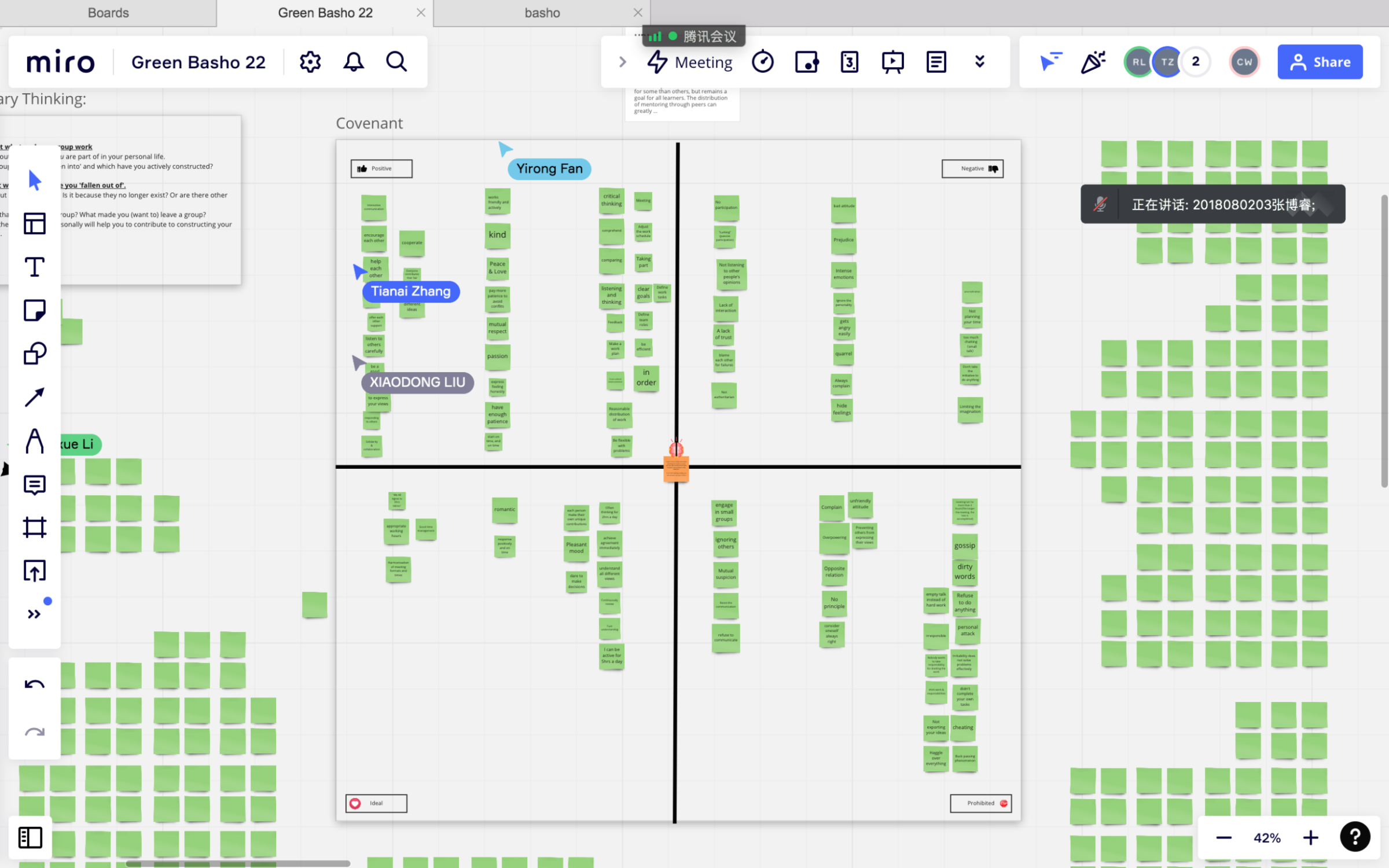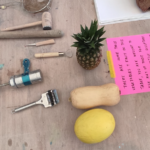A crucial aspect of my academic journey has been learning how to work with others. Despite my four years of cooperation experience, I still see myself as a beginner in this field. Peer collaboration over the past two weeks has given me a new perspective on how to understand cooperation. In this blog post, I will respond to the question, “How can I begin developing a method of working with my peers that will enable the open pooling and sharing of our skills?”
First of all, Before beginning to openly collaborate with a group of peers, it’s crucial to get to know them. We were placed in a group at random throughout these two weeks; thus, we were unable to select our partners. In this situation, taking part in the initial collaborative assignment in person was the most straightforward way for everyone to get to know each other. We were required to do our first basho project during the first week of the course, which allowed us to quickly grasp some of the roles that other people are most likely to fall into. For instance, in my basho, one was better at coming up with original ideas, while the other was better at listening and recording. Understanding the roles of the various team members and finding our place within the team will enable us to collaborate more effectively.
Second, defining team goals is the cornerstone of effective teamwork. Create our Basho’s Covenant was a straightforward, well-defined goal for the week, so it did not take long to get everyone’s opinions in line. However, as we got to the topic of “what is the objective of basho this semester,” various viewpoints began to emerge. Some people believed that basho was merely created to finish assignments, while others claimed that studying with basho groups is a way for people to learn from one another. These differences in opinion will affect how much time and effort each person invests. In order to avoid future unnecessary conflict, the group needs to discuss a common purpose whenever such disagreements occur.
Thirdly, it is crucial to allocate time effectively and to be explicit about how much time each member is prepared to put in. In this week’s meeting, we discussed time commitment and found several points of view. Some thought it would be better for group members to get together more frequently after class to enable the exchange of knowledge, while some would choose to invest less time to improve efficiency. We agreed on a moderate strategy: the class assignment should be finished first, and then, if necessary, we can meet online (for no longer than two hours each week) to discuss our feelings. It is essential to decide in advance how much time should be devoted to the partnership each week.
Finally, effective tools and software can improve communication. Since the members of our group come from various nations and are accustomed to utilizing various social media platforms and productivity tools, adopting one or two specific business apps will help us reduce the time we spend exchanging information. We have been using miro for the past two weeks; it is a productive platform for collaboration that allows us to see one other’s progress instantly. We also tried online communication tools to improve our interaction when we could not meet in person.
To sum up, establishing a basho covenant is an excellent way to begin cooperating more effectively. Before we start working collectively, we should be aware of our and each other’s capabilities, set a shared team goal, be clear about the time commitment, and align the tools for the job.
For more details about what I do this course, please click the link below:






s2444438
20th October 2022 — 5:37 pm
I really appreciated the author’s suggestion that group members need to get to know each other and take on different roles within the group based on each person’s personality and strengths, which inspired me a lot. However, in the second suggestion the author says to clarify goals and resolve differences, I wonder if the author has a more specific approach to resolving differences and reaching consensus, as this is not clearly stated in the blog.
s2341902
22nd October 2022 — 10:23 pm
At this stage of the sprint, chenyan and I were in the same basho. It was good that chenyan had a clear view of the collaboration, which helped to make it work.
s2185092
23rd October 2022 — 4:45 pm
The author of this article talks in great detail about how to get closer to other members and make rules in the early days of the group. It is true that everyone has a different understanding of new things, and the energy invested will be different. This requires everyone to spend a lot of energy to communicate to reach an agreement.
s2441634
23rd October 2022 — 5:44 pm
In this blog, facing the problems in the scenario, the author talks about how to work together in four ways. Thanks to the author for proposing such a multi-perspective direction of thinking, which helped me a lot in my thinking in the course. If possible, I hope the author can elaborate on the second point, how to resolve group conflicts and assign aspects of common goals, and propose more detailed solutions.
s2358907
24th October 2022 — 12:44 am
The author’s reflections on P2P are very thorough and in-depth, as she makes a series of connections between her previous experiences and this group activity and develops a detailed analysis that affirms the importance of teamwork. However, I think it could have been better to include some of the detailed work of the Basho group.
wjake
24th October 2022 — 1:14 pm
Chenyan Wang, this was a great first post that demonstrates a clear and careful approach to reflecting on your learning experiences. In particular, your ability to break collaborative obstacles down into a numbered set of assertions and provide context for them is a great skill.
It’s great to see how practically and materially minded you have been about making the basho dynamic function. It was also useful to get a sense of the dissensus that emerged during the process and how this has informed your thinking. I look forward to seeing how (and if) this manifests as you develop into the course.